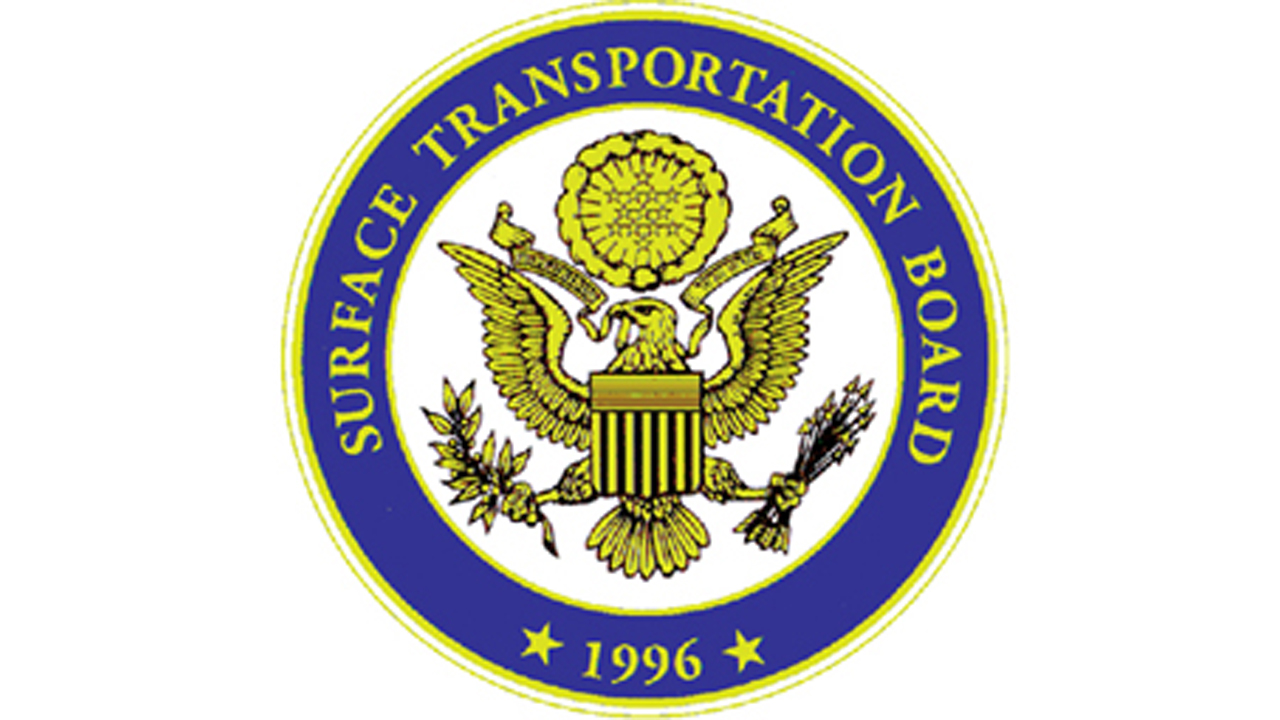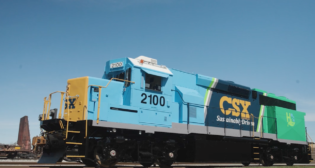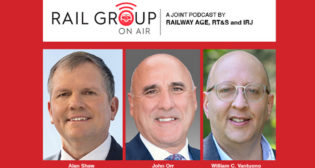
STB Opts for Transparency Over Fiat
Written by Frank N. Wilner, Capitol Hill Contributing Editor
WATCHING WASHINGTON, RAILWAY AGE JUNE 2022 ISSUE: At a late April Surface Transportation Board (STB) hearing, up bobbed aggrieved shipper witnesses, one following another as hammers in a pianoforte, much as Charles Dickens (Bleak House) amusingly described the successive appearances in chancery of 18 attorneys.
Rail service failures, shippers said, are adversely affecting the nation’s chemical, food and energy supplies and contributing to retail price inflation. Blame was laid on too-aggressive implementation of Precision Scheduled Railroading (PSR)—an operating strategy critics view as a zero-sum game benefiting carrier bottom lines and driven by Wall Street demands that railroads eviscerate costs to drive operating ratios (operating expenses divided by operating revenue) lower.
PSR, it was alleged, is responsible for ill-conceived head-count and freight car reductions, mothballing of locomotives, closing of hump yards, and failure to switch cars into and out of customer facilities as requested—all threatening plant shutdowns.
The American Farm Bureau Federation reported unfilled grain car orders up 47%. The Fertilizer Institute said a railroad told customers to “curtail” shipments, menacing maximum crop yields owing to a short window for fertilizer application. Ranchers said they are “depopulating” herds owing to feed shortages. Increases in dwell time (cars not moving), said a witness, elevates storage fees even when the customer has “no control” over the delay. A municipality said its water supply system is dangerously short of chlorine. A shipper said a car destined for Galesburg, Ill., was detoured to Nashville to alleviate carrier congestion, arriving in Galesburg 33 days late.

STB Chairperson Martin J. Oberman scolded Class I railroads for cutting their workforce by some 30% over the past six years. Pointing to the six to nine months it takes to train new train crews, he chastised carriers for failure to foresee a post-pandemic surge in freight shipping demand.
Although railroads acknowledged service failures—“We have struggled; we have underperformed,” said CSX CEO James M. Foote—a Teflon coating was applied to the mea culpa. Rather than being an evil Mr. Hyde focused on share buybacks, dividend increases and stock share price as alleged, railroads characterized themselves as an unfortunate Dr. Jekyll—humbled by a global pandemic; extreme weather; unprecedented shipping demand; unceasing supply chain disruptions; and disgruntled employees shouting, “Take this job and shove it because I have better lifestyle options.”
What are the rail regulators to do? Nothing radical, it appears for now, with actions so far following the advice of entrepreneur Mike Bloomberg—“In God we trust. All others bring data. You can’t manage what you can’t measure.” Shippers sought more, but none offered a 30-day silver bullet to unravel the chaos.
“Although railroads acknowledged service failures, a Teflon coating was applied to the mea culpa.”
Its eye on greater reliability through transparency, the STB ordered extensive new data reporting to include anticipated recovery timelines. This bathing of rail operations in disinfecting sunlight is in expectation of voluntary service improvements depending on railroad angst that shareholders will punish recalcitrant recidivists. “Carriers are best-positioned to identify and implement steps to improve service. The new measures promote industry-wide transparency, communication and accountability,” says STB member Patrick J. Fuchs.
The STB ordered railroads to provide a service recovery plan and communicate strategies for new hiring, bringing back furloughed employees, returning to service stored locomotives and freight cars, and adjusting PSR to share benefits with shippers.
Emphasis is to be on first-mile/last-mile metrics. To be revealed over the next six months are deviations from benchmarks—by railroad, region and even locality—providing real-time tracking as to car-trip compliance, switches performed, local train cancellations, car-miles, car velocity and terminal dwell times.
The STB is prepared to add sharper teeth and stronger jaws, such as a final rule on whether and when to create two-railroad competition at sole-served facilities (reciprocal switching) and by strengthening the definition of the common carrier obligation—the duty of railroads to provide transportation or service on a reasonable request. The STB already has statutory authority to impose civil fines of $8,736 for each violation, per delayed car, per day.
“I believe in letting markets decide,” Oberman said, “but there has to be a market,” portending—to borrow from Shakespeare’s Macbeth—“something wicked this way comes” should voluntary actions not suffice.

Railway Age Capitol Hill Contributing Editor Frank N. Wilner is a former assistant vice president for policy at the Association of American Railroads, a former chief of staff at the STB, a former president of the STB bar association, and author of seven books on railroad economics and labor relations. Publication by Simmons-Boardman Books (a Railway Age sister company) of his latest book, “Railroads & Economic Regulation,” is pending.



